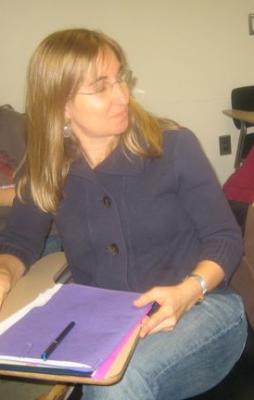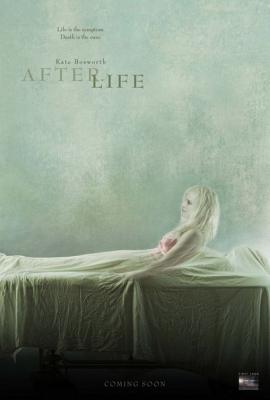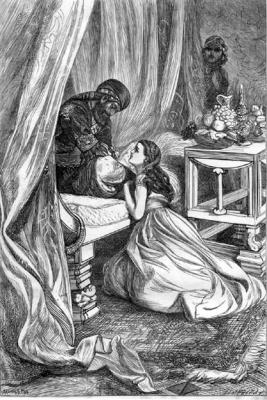 |
 |
MissArcher2's Notes on Our Conversation
I. Introducing Kristin:
BMC Ph.D./director, HC Writing Center,
disabilities studies scholar/co-teacher/friend!
II. Coursekeeping
how are we doing on names?
(no names in Penguins' summary...)
name a classmate, begin her "diary"??
class summaries:
thanks for the first one up, by Penguins
(any feedback on the process?)
today's recorder: MissArcher2
just put these on your own page; I'll link to 'em
from the appropriate course notes (see Wed's)
how are we doing, more generally,
re: posting? everyone's up! yeah!
various modes re: subsequent entries:
as dated edits (me, jrlewis)
as undated edits (aseidman)
as comments (Calamity, kkazan)
(exsoloadsolem--both ways?)
reverse-chronological (Fabelhaft, MissArcher2--
(a nice 21st century option not available to 19th-c. commonplacers!)
what about the absence of backing-and-forthing among us?
NOT endemic to this form: as per Calamity, kkazan, exsoloadsolem:
we each have a comment section:
might we each comment on one another's pages, as time goes on...?
(or link to one another's postings....?)
or....?
for Wednesday,
read one essay about Alice James, available on-line
through Canaday: Boudreau's 1993 "Barnum Monstrosity" --
(interesting follow-up to today's discussion of disability studies)
and our our first text by "Harry" (available on-line): "The Turn of the Screw"
(1898--6 years after Alice wrote her diary, and
17 years AFTER our primary text, The Portrait of a Lady,
--i.e.: not moving chronologically here!--
but just too delicious to pass up as a transition from one sibling to the next:
the claim will be that he based the short story on his sister's experiences of hysteria)
also! come see me by Thursday afternoon this week
(Wed. afternoon preferred) to talk about your paper
on Alice James (!), due on-line @ 5 p.m. on Friday
come not w/ a thesis (God forbid!) but w/ a plan:
what interests you most about our Alice in Wonderland?
who might you be going to put in bed w/ her,
to illuminate some aspect of her Diary?
how do you see her ideas carried forth in contemporary forms?
(for ex: Alice James Books...)
come having thought, too, about this weirdly new event of writing
academic papers on-line: how might this change what you are
used to doing? how might you play w/ form while exploring
new content?
See also (thanks to Kristin!)
Heather Dubrow, "Thesis and Antithesis: Rewriting the
Rules of Writing," The Chronicle Review (December 6, 2002),
for advice on crafting your argument "prematurely"
III. your quotes-and-comments
kkazan: A play ... is solely made up of dialogue. A diary only allows for one viewpoint ....
The diary gives us the true version of Alice, which the play cannot ....
we are bound to take all that is written as fact
and yet: our readings vary quite a bit:
kkazan: From Sontag, I grew to feel that Alice was pre-occupied with death and thought of almost nothing else .... But that is not at all the type of Alice that I take away from reading her diary.
Calamity: Alice James, in one of those human quirks of character, has refused to take her own life yet she waits, anticipates, and seems to hope for her death at any moment. I think at this point in her life [Sept. 1890] she feels like a moldy parasite and she wants to die, but not by her own hand.
Marina: "I had a tooth out the other day, curious and interesting like a little lifetime - first, the long drawn drag, then the twist of the hand and the crack of doom!"...She clearly does not find life to be a pleasant or easy experience, but rather finds it to be painful, drawn out, and inevitably ending in doom.
MissArcher2: Alice is grateful ... for the time to look forward to her impending death -- time which, Alice says, "doubles the value" of the event.... She writes that her death will be harder for Henry and Katherine to watch than for Alice herself to experience
jrlewis: her illness allowed her to escape many social conventions of the time .... it offered her intellectual freedom at the price of physical constraint.
Fabelhaft: Alice ... explores her situation in a way that appears almost separate from her consciousness .... protects her inner-most self .... assures herself that no one can truly "know" her unless she invites them in. Alice's concerns about people making judgments about her ... is the only level on which I truly feel a connection
aseidman: I think it's very likely that she's ... sparing herself the pains of actual self-critique but putting all of her anger at herself into this critiques of others. If that's the case, how does the [tendency to use very masculine, sexual ways of describing her world] fit in?
exsoloadsolem:
"I am sorry for you all, for I feel as if I hadn't even yet given my message"....seems to indicate some sort of presumed audience
that would be us!
IV. Today: Kristin Lindgren on the Afterlife of Alice James...
Illness, Storytelling, and Interpretation
I’m not a James scholar--not an “expert” on Alice or her family -- but I’m fascinated by Alice James, and I bring several different perspectives to bear on reading her Diary.
First, I’m a disability studies scholar. The interdisciplinary field of disability studies explores, among other things, how illness and disability are represented and interpreted. And I think Alice James challenges in some interesting ways the representation of illness.
Second, I was in an earlier incarnation a Victorianist, so I’m familiar with and engaged by Victorian literature and culture and especially by Victorian accounts of illness, of which there are a great many. Alice James embodies three iconic Victorian figures: the hysteric, the neurasthenic, and the invalid.
Third, I myself have a chronic illness. When I first got sick over a decade ago I spent a lot of time in bed. During that time I began to keep a kind of diary of my not-very-eventful-days that then evolved into a couple of published essays about it. So I have a very personal interest in how Alice James uses writing as a way to narrate, represent, and interpret her experience of illness.
Here’s the primary idea I’d like us to grapple with today: Chronic illness of any kind, but especially an illness for which there isn’t a clear or well-understood diagnosis, presents a problem both for storytelling and for interpretation. I’d like us to think together about how both storytellers (writers, patients, family members) and interpreters (literary critics but also physicians, family members and friends) have approached this problem, and how you, as readers of Alice James’s Diary and Sontag’s Alice in Bed, might approach it.
I’m going to start with a personal perspective, and in order to do that I’m first going to read you some brief excerpts from an essay I wrote entitled “Scheherazade Syndrome.”

the sultan pardons scheherazade
. . . My body was insisting that it had a story to tell. However, unlike my pregnancy story, this narrative has no shapely plot, no clear beginning, middle, and end. No one likes to hear my illness story.
Because a syndrome is defined by an aggregate of signs and symptoms rather than by one specific clinical finding, its diagnosis depends almost entirely on the patient’s ability to tell a story about her body. This narrative is then interpreted by the doctor, transformed into a diagnosis and a case history. Once I had a diagnosis I thought my storytelling was over, but it was just beginning. Chronic illness demands that you tell your body’s story over and over. I began to feel like the Arabian princess Scheherazade, who was compelled to construct a new narrative every night to save her life. Endlessly deferring closure, she grafted each evening’s story onto the tale that preceded it.
I am resolved to put some of my experience of illness into words, but frustrated by my inability to string together more than two or three sentences at a time. Perhaps short snippets of writing reflect my state of mind and body more truthfully than seamless paragraphs.
Space and time, the coordinates by which we plot our lives, become strangely altered by illness. I now inhabit an Alice in Wonderland world, one in which things shrink and expand without warning and the rules are difficult to discern. Space contracts to the dimensions of my bedroom. When I am too sick to read, I meditate on the architectural details of the room and the slowly changing seasons outside the window. Time expands. I live in great pools of time that are not demarcated or structured in any way. When I can’t sleep, day blurs into night.
Normally, I don’t feel the need to narrate my life, probably because it conforms to culturally available narratives. While my lived experience is much richer and more complex than these narratives would suggest, I can sum up my life in a way that is widely understood. People generally accept the ways in which I represent myself to them. Not so with illness. It’s hard to tell a coherent story about it. Postmodern theorists aside, our culture has a love affair with closure. Illness narratives are supposed to end with recovery or death, and mine has no tidy ending. Frustrated by the chronicity of her own illness, Alice James wrote in 1890 that “these doctors tell you that you will die, or recover! But you don’t recover. I have been at these alternations since I was nineteen and I am neither dead nor recovered—as I am now forty-two there has surely been time for either process” (142). Structured by alternation, oscillation, and interruption, the narrative of chronic illness is hard to listen to. . . . However I try to frame it, my experience of illness is immediately reframed and reinterpreted by the listener. Illness generates a good deal of hermeneutic energy on the part of the well.
What genres are available to us for writing about illness? Do particular genres reflect the experience of particular kinds of illnesses better than others? I know you’ve already talked in class about the differences between Sontag’s dramatic reinterpretation of James’s story and the story James herself tells in diary form, and I was interested by the notes from your last class. How do genre and form shape your reading experience? What challenges does a diary present for reading and interpretation? How might an author narrate a story of chronic illness while acknowledging its resistance to narrative? What function does writing seem to perform for James?
Illness as presenting an occasion for interpretation
Biomedical/sociocultural/psychological or spiritual/moral interpretations
Does James’s Diary invite certain interpretations of her symptoms?
Let’s look at some particular interpretations:
From Henry James’s letter to William (quoted in Leon Edel’s “Portrait of Alice James,” 19)
“[The diary] also puts before me what I was tremendously conscious of in her lifetime—that the extraordinary intensity of her will and personality really would have made the equal, the reciprocal life of a “well” person—in the usual world—almost impossible to her—so that her disastrous, her tragic health was in a manner the only solution for her of the practical problem of life—as it suppressed the element of equality, reciprocity, etc.”
From Susan Sontag’s “A Note on the Play,” an afterword to Alice in Bed:
“The all too common reality of a woman who does not know what to do with her genius, her originality, her aggressiveness, and therefore becomes a career invalid, merged in my mind with the fictional figure of the Victorian girl-child who discovers the world of adult arbitrariness in the form of a dream. . in which the changes in and perplexities about her feelings are imagined as arbitrary changes in physical size and scale” (115).
“. . . the bourgeois luxury of psychological invalidism. . . “ (116)
From Diane Price Herndl’s chapter “The Writing Cure: Women Writers and the Art of Illness” in Invalid Women: Figuring Feminine Illness in American Fiction and Culture, 1840-1940.
“Alice James. . . writes repeatedly in her Diary of ‘achieving’ illness and of ‘getting herself dead’ as a feat equal to or surpassing Henry’s and William’s writing. Jean Strouse, Alice’s biographer, argues that Alice maintained a kind of ‘negative superiority’ about her illness. ‘All her life Alice had been in conflict over just who she could be. . . . The intelligence and energy Alice might have used in some productive way went into the intricate work of being sick. . . . Her miserable health was her career” (Alice James: A Biography, 291). . . Alice’s ‘work’ was directed destructively at her own body, not exactly as punishment but as self-discipline, as making a work of art of her life. It was this destructive, punishing work that allowed her to construct a sense of self and self-control. The self she defined was ill; the one piece of writing she published in her lifetime, a letter to the editor of The Nation (4 July 1890) was signed ‘Invalid.’ Alice’s writing of her diary was an extension of this work, not a revision of it, because she attempted to write herself, as invalid, into it” (Herndl 126).
From Athena Vrettos, Somatic Fictions: Imagining Illness in Victorian Culture
“Faced with opposing views of her body, which was publicly denied (through the authorized language of medicine) and privately affirmed (through the unauthorized language of Alice’s secret diary), Alice assumed a double existence. By taking control of her own story, Alice transformed an unsatisfactory medical narrative—her case history—into a personal narrative that affirmed her body’s reality by projecting it onto the written page. In other words, through the act of inscribing her experience of illness (albeit in an often flippant and self-deprecatory manner), Alice was able to sustain a belief in the validity of her physical experience in the face of medical denials and doubts” (49).
From the Course Forum:
jrlewis: “Initially, I was surprised by the idea that there might be anything in common between Alice in Wonderland and the life of Alice James. After reading the tea party chapters in both Lewis Carroll’s story and Susan Sontag’s play, the similarities started to appear. Both works are about a woman’s journey of self-discovery and invention. Each Alice is learning about herself and her place in the world. The problems they face and the solutions they make are surprisingly similar.
What do these interpretations have in common? How do they differ? On what assumptions are they based? Do they resonate with your own reading of the Diary? What evidence do you find in the Diary to support any or all of these interpretations? To refute them? What extratextual evidence might you bring to your reading of these passages? What issues of interpretation do you, as readers of her Diary (and of Alice in Bed) in 2010, find pressing?
A crucial passage from the Diary
May 31, 1891 (p. 206 in my edition)
To him who waits, all things come! My aspirations may have been eccentric, but I cannot complain now, that they have not been brilliantly fulfilled. Ever since I have been ill, I have longed and longed for some palpable disease, no matter how conventionally dreadful a label it might have, but I was always driven back to stagger alone under the monstrous mass of subjective sensations, which that sympathetic being “the medical man” had no higher inspiration than to assure me I was personally responsible for, washing his hands of me with a graceful complacency under my very nose. Dr. Torry was the only man who ever treated me like a rational being, who did not assume, because I was a victim to many pains, that I was, of necessity, an arrested mental development too.
Notwithstanding all the happiness and comfort here, I have been going downhill at a steady trot; so they sent for Sir Andrew Clark four days ago, and the blessed being has endowed me not only with cardiac complications, but says that a lump that I have had in one of my breasts for three months, which has given me a great deal of pain, is a tumour, that nothing can be done for me but to alleviate pain, that it is only a question of time, etc. This with a delicate embroidery of “the most distressing case of nervous hyperaesthesia” added to a spinal neurosis that has taken me off my legs for seven years; with attacks of rheumatic gout in my stomach for the last twenty, ought to satisfy the most inflated pathologic vanity. It is decidedly indecent to catalogue oneself in this way, but I put it down in a scientific spirit, to show that though I have no productive worth, I have a certain value as an indestructible quantity.
How does this moment function in James’s narrative?
Here are four good resources for reading and thinking further about women and illness in the Victorian era:
Athena Vrettos, Somatic Fictions: Imagining Illness in Victorian Culture.
Diane Price Herndl, Invalid Women: Figuring Feminine Illness in American Fiction and Culture, 1840-1940.
Miriam Bailin, The Sickroom in Victorian Fiction: The Art of Being Ill.
Elaine Showalter, The Female Malady: Women, Madness, and English Culture, 1830-1980.


